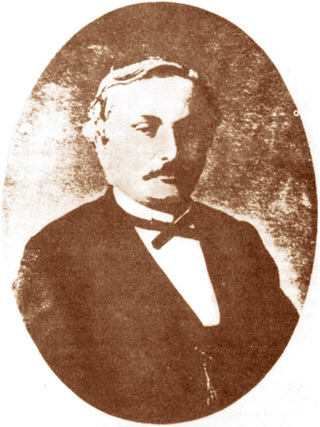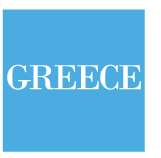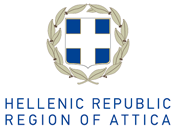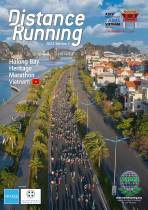Running into history
01 July 2012, 7am
Michel Bréal: the founder of the Marathon
The modern Olympic Games were established at the Founding Congress of the International Olympic Committee in Paris on 23 June 1894. Of the 78 participants from nine countries 58 were French, including Pierre de Coubertin himself, the main instigator of the movement.
But they did not include the famous classical philologist, Michel Bréal. Bréal was present at the closing banquet of the Congress where he sat on Coubertin’s right. After dinner he spoke directly after Coubertin and ended by eloquently quoting the famous sporting motto “citius, altius, fortius” formulated by Father Didon, well-known all over France as a Dominican preacher.
What immortalised Michel Bréal in Olympic history was his letter of 15 September 1894 urging Coubertin: “If you go to Athens, you could try and see if a long distance run from Marathon to Pnyx could be organised. That would emphasize the character of Antiquity… I, personally, claim the honour of sponsoring the marathon trophy.” In this letter Bréal also indicates his willingness to become a member of a new French Olympic committee and suggests forging a relationship between the modern Olympic Games and an International Peace Movement, recommending that all foreign initiatives should be directed to the newly established IOC.
Given the amount of books by Greek and Latin authors in his personal collection Coubertin must have known the story of the battle at Marathon, and the legend of the Athenian soldier’s run. After declaring victory this soldier apparently collapsed and died at Pnyx. What could have persuaded Bréal, 2400 years later, to give this such importance? It is unlikely that a classical philologist of Bréal’s quality would be influenced by legends written 600 years after the battle. But Bréal may have mixed up two of Herodotus’s legends, written much closer to the time.
The first tells of an Athenian messenger sent to Sparta, before the battle of Marathon in 492 B.C., with a request for weapons. This legendary fast runner is supposed to have run the 240km distance in one and a half days. The second legend concerns the remarkably fast retreat by the heavily armoured successful Athenians over a distance of 40km from Marathon to Athens. This was covered in only one day in order to protect their city from a possible sea attack. The Roman author Plutarch’s description, (600 years after the battle) of the legend of the dying messenger may have been a further ingredient. Bréal’s idea was certainly encouraged after 1890 when archeologists identified a small hill in the plains of Marathon as the burial mound of the Athenian soldiers killed in action in the year 492 B.C.
Bréal must have aroused Coubertin’s enthusiasm, because the published programme of 1895 for the Olympic Games included a “Running event called ‘Marathon’ over a distance of 48km from Marathon to Athens for a trophy, sponsored by Mr. M. Bréal, member of the Institut de France.” It also won support among Greeks. The young Republic was looking for its own identity so the revival of the Olympic Games and the idea of the Marathon in their capital city came at the right time. In a letter dated 9 January 1896 Bréal requested the translation of the inscription intended for the marathon trophy into Modern Greek. He says that otherwise the successful athletes would not be able to understand it, clearly indicating that he thought the winner would be Greek.
An undated visiting card to Coubertin, congratulating him on the birth of his first child in February 1896, bears a note from Bréal: “Don’t travel to Athens before I have given you something to take for me.” Bréal was referring to the trophy he had sponsored, which had been made by a jeweler in Paris.
At first there was talk of a 48km Marathon but in the last printed programmes sent with the invitations 42km was mentioned. In the detailed programme dated 15 February 1896, a marathon course of 40km was listed for the fourth day, along with several rules:
“The marathon course runs over a main stretch from Athens over Kifiassias to the Penethenikon Stadium. The distance is 40 km.
The start is at one o’clock in the afternoon and each runner will be supervised by a steward. The winner is the one who arrives at the Sphentonen in the stadium first.
Anyone who disturbs a fellow competitor, takes a short cut or who uses transport will be disqualified.”
The story of the first Olympic Marathon is well known. The Greek substitute runner Spiridon Louis won and became the first Greek Olympic winner after so many Americans in the preceding days. He received Bréal’s silver trophy from the King on the closing day of the Games. The trophy remained in the possession of his grandson until 18 April 2012, when it was sold at auction and acquired by the Stavros Niarchos Foundation. On 10 April 1896 Demetrius Vikelas, President of the IOC before Coubertin succeeded him shortly after the inaugural Games, sent a telegram to Bréal about the successful running of the event and the winner Spiridon Louis. Bréal thanked him in a very friendly letter the day after and congratulated Vikelas on the success of the Games.
In Bréal’s sparse correspondence with Coubertin there are two further points concerning his initiation of the Marathon event. Early in the year 1905 Coubertin requested his opinion of the Olympic Games being held in Rome. Bréal not only welcomed this but concluded: “If there should be space for a new Marathon I would gladly renew my support, as I did ten years ago”. Then, on an undated visiting card sent to Coubertin at the earliest in the summer of 1909, he thanked him for sending an early copy of his memoirs: “A Twenty-One Year Campaign.” He wrote that he still had not found the time to read if Coubertin had dedicated a place to the Marathon, but that in the meantime the name Marathon had firmly established itself in sporting vocabulary.
Coubertin had indeed respectfully recognised Bréal’s role in the introduction of the Marathon and had preserved it in his memoirs in the chapter “The Founding of the IOC in 1894.”
At the beginning of the 1890s the young Coubertin had already recognised the importance of having the support of such a highly respected academic as Michel Bréal, even if only as an advisor. Their exchanges show that Bréal regarded the young baron highly and wanted to support his activities. The very polite form of greeting used throughout shows that there was a certain distance between them but in questions about antiquity, Coubertin sought advice from Bréal for at least 15 years between 1894–1909.
Coubertin never denied Bréal’s role as the initiator of the Marathon, but he never particularly emphasised it. This was Coubertin’s style: he wanted his life’s work, as far as possible, to bear his own personal stamp.








